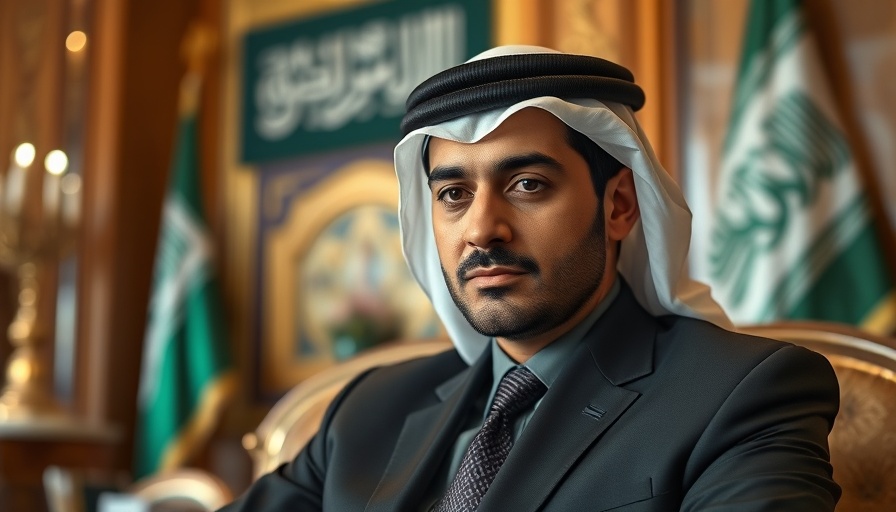
Understanding the Escalating Crackdown on Freedom of Expression in Saudi Arabia
Recently, whispers of discontent have been silenced through sweeping government measures in Saudi Arabia, where authorities have intensified their crackdown on what they term 'immoral acts' and dissenting opinions. Alarming reports indicate that individuals are now facing unprecedented prison sentences for merely sharing their thoughts online, a worrying trend that raises fundamental questions about human rights in the Kingdom.
Disturbing Trends in Online Suppression
As the Saudi government tightens its grip, the range of targets has expanded beyond prominent activists to include ordinary citizens. Amnesty International revealed that in 2022 alone, individuals were sentenced up to 45 years of prison just for expressing their views on social media platforms. For instance, Salma al-Shehab, a PhD student, was sentenced to an astonishing 34 years for tweets advocating for women’s rights, illustrating the severe backlash against even mild forms of dissent.
Shockingly Long Sentences for Ordinary Citizens
These harsh sentences tell a story of fear and control; many of those affected were unassuming individuals who simply used Twitter for expressing their opinions. Take the case of Saad Ibrahim Almadi, a 72-year-old U.S. citizen who faced a 19-year prison sentence for tweets criticizing the monarchy. Initially a retired project manager, Almadi found himself ensnared in a web of punitive laws that equate peaceful expression with terrorism.
The Chilling Effect of Cyber Surveillance
What makes this situation even graver is news that the Saudi government has infiltrated online platforms like Twitter to monitor and collect information on dissidents. This unlawful surveillance aids the authorities in identifying and arresting individuals—like Almadi—who make comments deemed harmful to the monarchy. The chilling reality is that citizens now scrutinize their words carefully, as even the mildest critique can lead to severe penalties.
Global Implications of Saudi Crackdowns
This crackdown on dissent is part of a disturbing global trend. Around the world, authoritarian regimes have proliferated practices of repressing free speech through digital means. As highlighted by recent events, the tools of technology have not merely facilitated communication; they have also become weapons wielded against those advocating for change. The implications of Saudi Arabia’s actions extend beyond its borders, raising alarms within the global community about the state of human rights and democracy.
Counterarguments: A Claim to Security
Supporters of the Saudi regime argue that such measures are essential for maintaining national security and public order. They assert that the crackdown on dissent is necessary to prevent unrest within the Kingdom, particularly against the backdrop of various geopolitical tensions in the Middle East. However, critics firmly argue that silencing voices only breeds further resentment and instability, ultimately leading to the very disorder these policies intend to prevent.
Practical Insights on Free Speech and Activism
For activists and citizens worldwide, the Saudi crackdown serves as a potent reminder of the inequalities in access to free expression. In many societies, the Constitution affords protections for free speech, allowing dissent to flourish in the fabric of democracy. To combat encroachments on rights, individuals must foster environments where open dialogue is celebrated rather than suppressed. Supporting organizations that champion human rights, raising awareness, and using social media platforms responsibly, can expedite change.
The Path Forward: A Call for International Action
The international community must step up and hold authoritarian regimes accountable for their actions. Advocating for those imprisoned for their ideas, engaging in dialogues that highlight human rights issues, and applying pressure through diplomatic channels are pivotal in promoting justice. Restoring faith in the ideals of free expression will require collective effort and persistent commitment.
The recent brunt of Saudi Arabia's crackdown on free speech raises urgent concerns about the future of human rights in the region. We must remain vigilant and proactive in upholding the standards of human activity that foster a just and open society.
 Add Row
Add Row  Add
Add 



Write A Comment